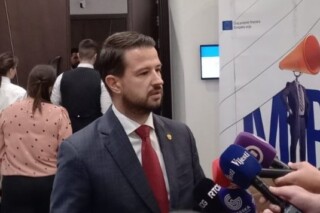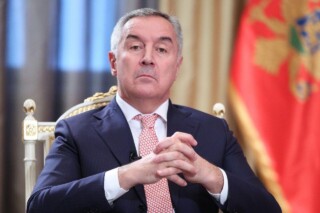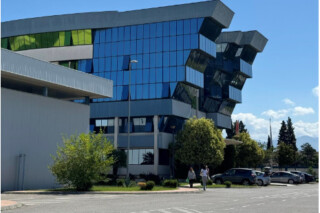Good morning! Yesterday, an arduous process was put to an end. Serbia missed the opportunity to get rid of the traumas of the past. Montenegro went through a catharsis once again. A part of it that may not have done it before. I would stop at the example of one man – his name is Branko Krvavac.
Click here to join our Viber group, where we update you live from hour to hour and answer your questions directly.
What have we learnt from Branko Krvavac?
Milojko Spajic’s government passed another stress test. It seemed at times that it would give in to the hysteria from Belgrade, but it didn’t. There is a chance and hope that this society will come to some kind of healing in due time. The attitude towards Srebrenica is an attitude towards the victims, but also towards our collective conscience. We have written a lot about it these days. It is easy to condemn other people’s crimes, but in the Balkans, it is almost impossible to condemn those committed in our name.
The amendments, the twitter army of PES sympathizers who continue to be hard on “Montenegrin extremists”, while ignoring the threat of Serbian nationalism, made me think that, in case of success of another “people’s event”, young people from PES will bow down. But they didn’t.
I realized that they did not when I read the reaction of Branko Krvavac, Milojko Spajic’s chief of staff. I’ve been thinking about that guy a lot the past few days. I don’t know him, but I was prejudiced. If you google his name, you will see that a street in Pljevlja was recently named in honour of a man with the same name. The man who died in 1991 on the battlefield. The younger Branko was born in 1992.
I was interested in the case of the martyrdom of soldier Krvavac and saw that priest Miajlo Backovic, a priest of the Serbian Orthodox Church, known to the public for his nationalist activism, for years organized public forums in memory of his uncle Branko Krvavac, and that he put it in the context of his nationalist agenda. Because of this, I was also prejudiced against the younger Branko Krvavac, whose father or uncle was killed in 1991. I thought that this young man also harbours a desire for revenge in his heart and that, unlike Backovic, he skillfully hides it.
Zeljko Ivanovic warmed it up for me in his last column, in which he inhumanly made fun of the tragedy of this man, calling him “Branko Junior”.
Then I read his reaction to Srebrenica and I felt ashamed. With that reaction, he was the first to explain their amendments logic in a different way, when he said that that was how manipulation regarding the Resolution would be prevented. Manipulation forced by none other than “the president of all Serbs”.
Then I tried to put myself in his shoes. What would have happened if my father had died in 1991 in Dubrovnik, where he was also mobilized in the Yugoslav People’s Army (JNA). What would have happened to me? I was seven years old and started school when my father was on the battlefield. Would I go the way of Backovic or Krvavac? To be honest – I don’t know.
I wrote the other day that during my studies in Belgrade, I never had a problem because of my activism and independence views. Not exactly. There were a couple of minor incidents in my seven years of living in Serbia. I was once threatened at university by a man from Ljoticevci (Serbian Volunteer Corps) who wore a ring with a swastika. I didn’t take it seriously because the guy was funny in his hatred. I asked him “did anyone from your family die in the war?”. He told me that he had lost his father and brother. I didn’t make any comments again.
The meaning of today’s text is that we must understand that we are not all the same, and that we all come from different families and any other experiential environments. We’ve written a lot about it over the past four years.
Neither will we all ever be Montenegrins in Montenegro, nor will we all ever be Serbs. And our goal should not be to heal “Serb-converts” from Serbianism or “Milonegrins” from “Montenegrinism”. That is not the path to reconciliation.
Our goal should be the well-being and progress of our political community. And it is one. And in it, we are fatefully directed towards each other.
Branko made his contribution. He did not allow his trauma and personal tragedy to trap him in hatred. He put himself in the role of the other.
Isn’t it enough?
That’s it for today and this week. See you again on Monday.
Kind regards,
Ljubomir Filipovic, CdM analyst and columnist
(The opinions and views of the authors of the columns are not necessarily those of the CdM editorial staff)




